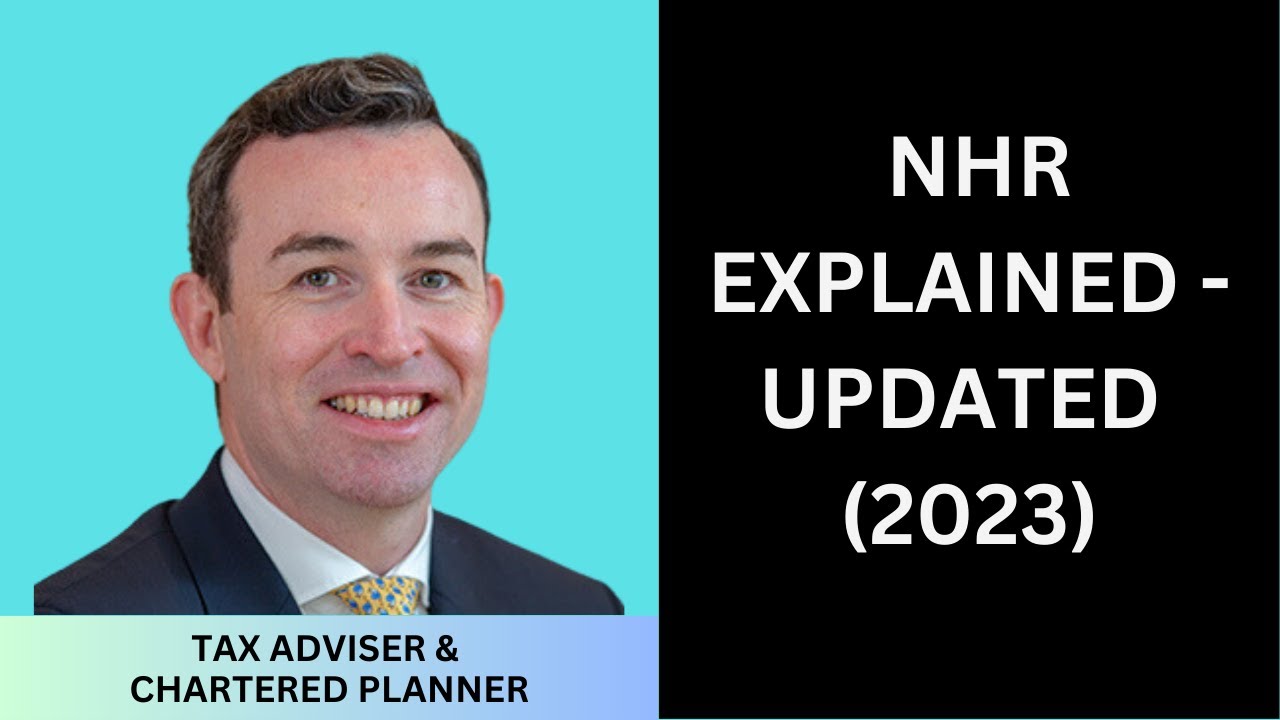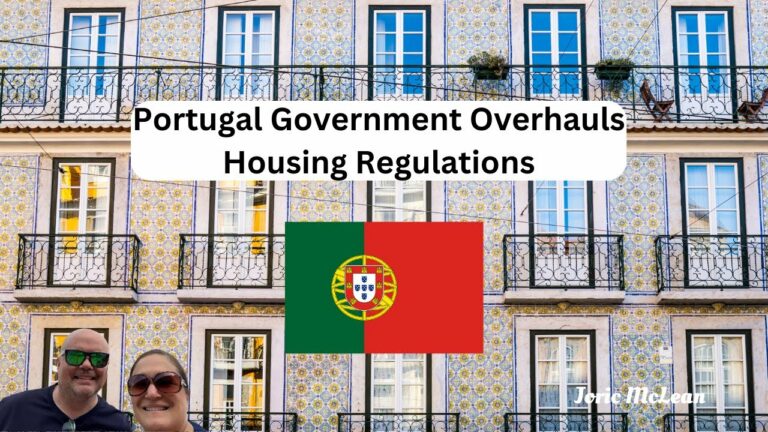NHR Portugal Tax Regime: Golden Visa Insights
As an expat who has lived in multiple countries, I have experienced the complexities of navigating different tax regimes. However, there is one country that stands out as particularly expat-friendly when it comes to taxes: Portugal. And within Portugal’s tax system, there is a unique program that offers significant benefits for those who qualify: the Non-Habitual Resident (NHR) tax regime.
I myself have taken advantage of the NHR program and can attest to its many advantages. Under this program, qualifying individuals can enjoy a flat tax rate of just 20% on most types of foreign income for a period of 10 years. This includes income from pensions, investments, and business activities.
But the benefits of the NHR program extend beyond just tax savings. As a participant in the program, I have also been able to take advantage of Portugal’s many other benefits for expats, such as its affordable cost of living, high quality healthcare system, and diverse cultural offerings.
If you’re considering a move abroad and are looking for a tax-friendly destination, I highly recommend considering Portugal’s NHR program. In this guide, I will provide you with all the information you need to determine if you qualify for the program, how to apply for it, and what to expect once you are enrolled. Along the way, I’ll share my own experiences as an NHR participant and provide practical tips and advice to help you make the most of this unique opportunity.
What is Portugal’s NHR tax regime?
If you’re considering moving to Portugal, then you must have heard about the Non-Habitual Resident (NHR) tax regime. This is a program that offers significant tax benefits to individuals who become tax residents of Portugal. In this article, we will explore what the NHR tax regime is, how it works and who can benefit from it.
What is the NHR tax regime?
The NHR tax regime was introduced by the Portuguese government in 2009, as a way of attracting foreign investment and talent to the country. The program offers significant tax incentives to individuals who become tax residents of Portugal. The main benefit of the NHR tax regime is that it allows eligible individuals to pay a flat tax rate of 20% on their Portuguese source income. This rate is considerably lower than the regular income tax rates in Portugal, which can be as high as 48%.
How does the NHR tax regime work?
To become eligible for the NHR tax regime, you must first become a tax resident of Portugal. This means that you must spend at least 183 days per year in the country or have a home in Portugal that is your primary residence. Once you become a tax resident of Portugal, you can apply for the NHR tax regime.
Under the NHR tax regime, eligible individuals will pay a flat tax rate of 20% on their Portuguese source income for a period of 10 years. This includes income from employment, self-employment, pensions, and investments. Foreign income is generally exempt from Portuguese taxation under the NHR tax regime.
Who can benefit from the NHR tax regime?
The NHR tax regime is open to individuals who have not been a tax resident in Portugal in the previous five years. This means that individuals who have recently moved to Portugal can benefit from the program. The NHR tax regime is particularly attractive to retirees, freelancers, and entrepreneurs who have location-independent income.
What regime is tax free in Portugal?
If you’re considering a move to Portugal, you may have heard of the Non-Habitual Residency (NHR) tax regime. This tax regime offers significant tax benefits for eligible individuals, including a tax exemption on certain types of income. In this article, we’ll explore what the NHR regime is and which types of income are tax-free in Portugal.
What is the NHR tax regime?
The NHR regime is a tax regime designed to attract individuals to Portugal who are not already tax residents in the country. Under this regime, eligible individuals can receive significant tax benefits for a period of 10 years. To be eligible for the NHR regime, you must meet the following criteria:
- You must not have been a tax resident in Portugal for the previous 5 years
- You must spend at least 183 days in Portugal each year, or have a home in Portugal that you intend to use as your primary residence
- You must register as a tax resident in Portugal
Which types of income are tax-free under the NHR regime?
One of the most significant benefits of the NHR regime is the tax exemption on certain types of income. If you are eligible for the NHR regime, the following types of income are tax-free in Portugal:
- Foreign-sourced income, such as pensions, rental income, and capital gains
- Passive income, such as dividends and interest
It’s important to note that while these types of income are tax-free in Portugal, you may still be required to pay taxes on them in your home country. You should consult with a tax professional to fully understand your tax obligations.
What happens after 10 years of NHR in Portugal?
Portugal’s Non-Habitual Resident (NHR) tax regime has become increasingly popular among expats looking for a low-tax jurisdiction to call home. Under this program, individuals who become tax residents of Portugal but have not been residents in the previous five years can benefit from a flat income tax rate of 20% on most types of foreign income for a period of 10 years.
However, what happens after the 10-year period is over? Will you be subject to higher tax rates or lose your NHR status altogether? These are valid concerns for many expats who are considering moving to Portugal.
Losing your NHR status
After 10 years of NHR in Portugal, you will lose your special tax status and will be subject to the regular tax regime. This means that your income, both domestic and foreign, will be taxed at the normal rates, which can be quite high compared to the NHR rates.
It’s worth noting that losing your NHR status doesn’t necessarily mean that you have to leave Portugal. You can still live in the country and enjoy all the benefits of being a resident, such as access to healthcare and education, but your tax bill will be higher.
Planning ahead
If you’re approaching the end of your 10-year NHR period, it’s important to start planning ahead. You may want to consider restructuring your assets and income streams to minimize your tax liability under the regular regime.
For example, you can invest in Portuguese real estate, which can qualify for special tax exemptions and deductions. You can also explore other tax-efficient investment vehicles, such as private pension schemes or investment funds.
Renewing your NHR status
It’s also worth noting that you can renew your NHR status after the 10-year period is over. However, you will need to meet certain conditions, such as not having been tax resident in Portugal in the previous five years, and demonstrating that you have significant ties to the country.
If you qualify for renewal, you can enjoy another 10 years of low-tax living in Portugal. This can be particularly attractive for retirees or those who have established a business or social network in the country.
Final thoughts
Portugal’s NHR tax regime can be a great option for expats looking to minimize their tax burden and enjoy a high quality of life in a welcoming and affordable country. However, it’s important to understand the rules and limitations of the program, as well as plan ahead for the end of the 10-year period.
With the right strategies and guidance, you can make the most of your NHR status and continue to thrive in Portugal, whether you decide to stay after the 10-year period is over or renew your status for another decade of tax-efficient living.
In conclusion, the NHR Portugal tax regime is a great option for expats looking to establish residency in Europe and benefit from tax advantages. However, before making any decisions, it’s important to fully understand the legal and financial implications of this program, as well as the cultural norms and customs of Portuguese society. As a seasoned expat who has lived and invested abroad in multiple destinations, I can attest to the importance of being well-informed and prepared before embarking on any international move. With the right resources and guidance, expats can navigate the intricacies of the NHR Portugal tax regime and enjoy a fulfilling expat life in this beautiful and welcoming country.






